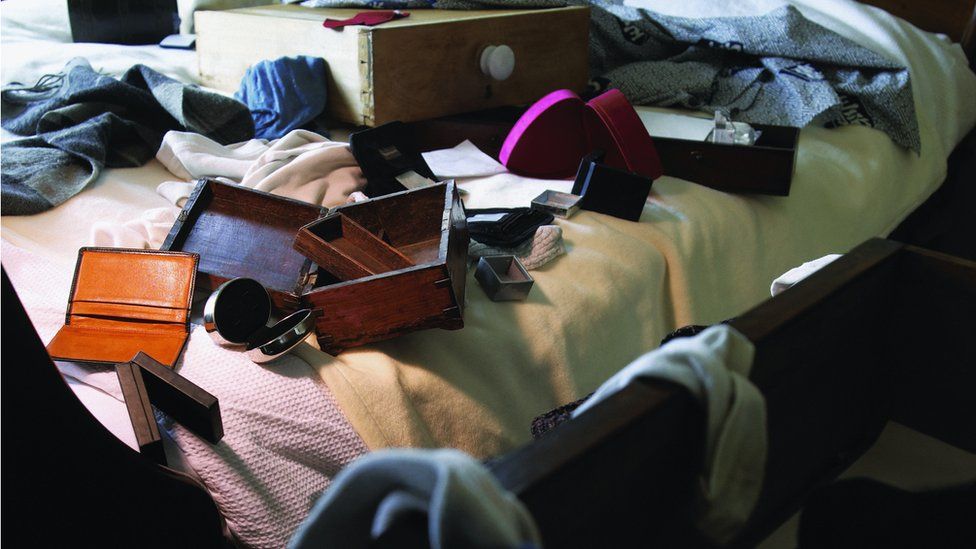ARTICLE AD BOX
By Judith Burns and Daniel Sandford
BBC News
 Image source, Getty Images
Image source, Getty Images
Most victims of burglary, robbery and theft in England and Wales are not being given the justice they deserve, the police watchdog says.
Her majesty's chief inspector of constabulary, Andy Cooke, calls current low charge rates "unacceptable and unsustainable".
Some forces tackle these crimes well - but many do not, his report says.
One car-theft victim told BBC News officers had closed his case within 24 hours, without visiting the scene.
Stefan Borson says his £82,000 Range Rover car was stolen from outside his home, in the early evening on Valentine's Day.
He notified the police immediately, found pictures of the theft on his own security camera, and waited for officers to be in touch.
Stefan Borson (R) told BBC News his six-month-old Range Rover had been stolen from outside his home, in London
He was therefore astonished to receive a letter, dated the next day, telling him: "We are sorry to say that with the evidence and leads available, it is unlikely that it would be possible to identify those responsible.
"We have therefore closed this case."
Image source, Stefan Borson
Image caption,CCTV footage from Stefan's home shows the Range Rover just before it was stolen
They had not called round, Stefan says, and it would be unlikely they had visited the crime scene without knocking on the door.
They did not check his or his neighbours' cameras or the vehicle's tracking record as it was driven away.
"I'm not sure on what basis they could have said they've investigated all potential leads," he adds.
The report, based on findings from force inspections by Her Majesty's Inspectorate of Constabulary and Fire and Rescue Services (HMICFRS) in 2021-22, highlights while some tackle these crimes effectively, others:
- miss opportunities to identify and catch offenders, at all stages from when a crime is first reported
- fail to give victims advice on crime-scene preservation during the initial call - in 71% of the cases examined
- lack investigative capacity and experience, made worse by a national detective shortage
- fail to supervise investigations properly - in a third of cases
The report comes soon after the most recent Home Office figures showed just 6.3% of robbery offences and 4.1% of thefts in England and Wales resulted in charges, in the year to March.
Too often forces' digital, forensic, technological and analytical capability is not good enough to let them carry out thorough investigations, the report says.
They must improve their approach to serious acquisitive crime - offences such as personal robbery, theft from a person, theft of and from a motor vehicles and domestic burglary.
And by March 2023, all police forces must ensure:
- burglary, theft and robbery crime scenes are managed according to national standards
- investigations are effectively supervised and directed
"Burglary, robbery and theft are not minor crimes," Mr Cooke says.
"There needs to be a concerted drive to address this issue because it directly affects the public's confidence in the police's ability to keep them safe."
A lack of experienced officers too often means these crimes are investigated poorly and inadequately supervised, "often because supervisors themselves are inexperienced and overstretched", he says.
And many detectives feel "disengaged and devalued and frustrated that they can't give the quality of service that the victims deserve".
One woman told BBC News in May she was threatened with a crowbar after feeling forced to track down her own car after it was stolen
National Police Chiefs' Council acquisitive crime lead Deputy Chief Constable Amanda Blakeman said they would look at the findings in detail "and work to assist forces in implementing improvements".
"We absolutely recognise how invasive and traumatic it is to be a victim of these serious offences," she added.
College of Policing chief executive Chief Constable Andy Marsh said the report was "absolutely right to recommend the full adoption of existing national standards".
"Only by taking a consistent approach will we fully protect the public and not let burglars off the hook," he added.
How have you been affected by any of the issues raised here? You can share your experience by emailing: haveyoursay@bbc.co.uk.
Please include a contact number if you are willing to speak to a BBC journalist. You can also get in touch in the following ways:
If you are reading this page and can't see the form you will need to visit the mobile version of the BBC website to submit your question or comment or you can email us at HaveYourSay@bbc.co.uk. Please include your name, age and location with any submission.

 2 years ago
31
2 years ago
31








 English (US)
English (US)